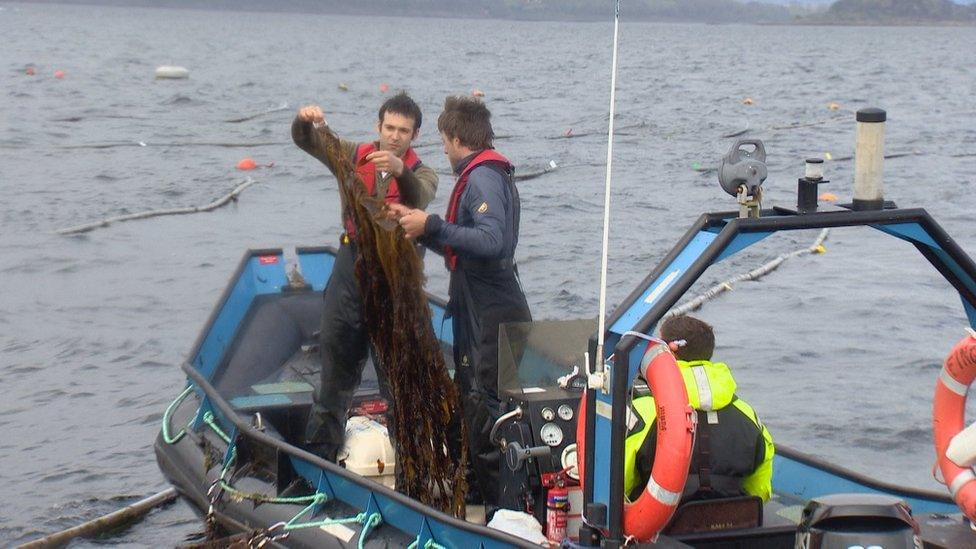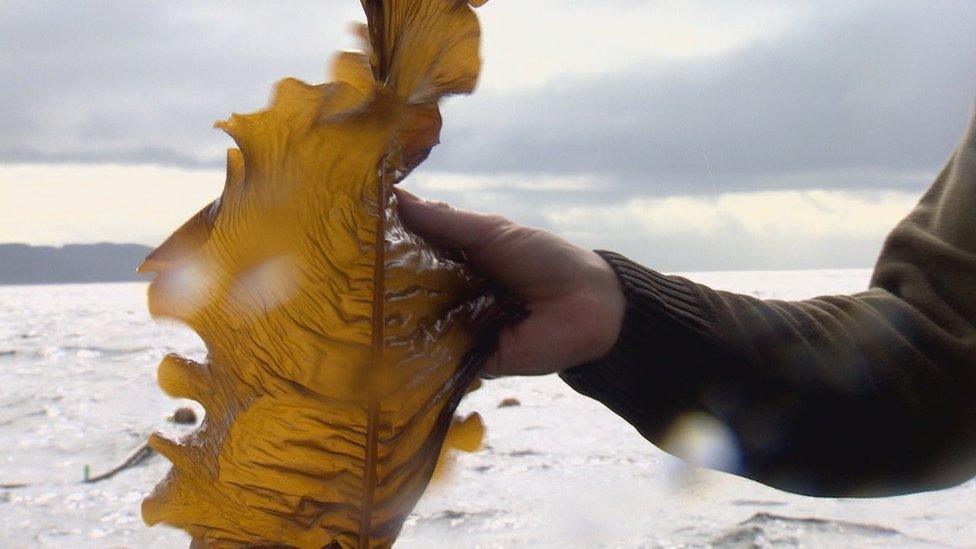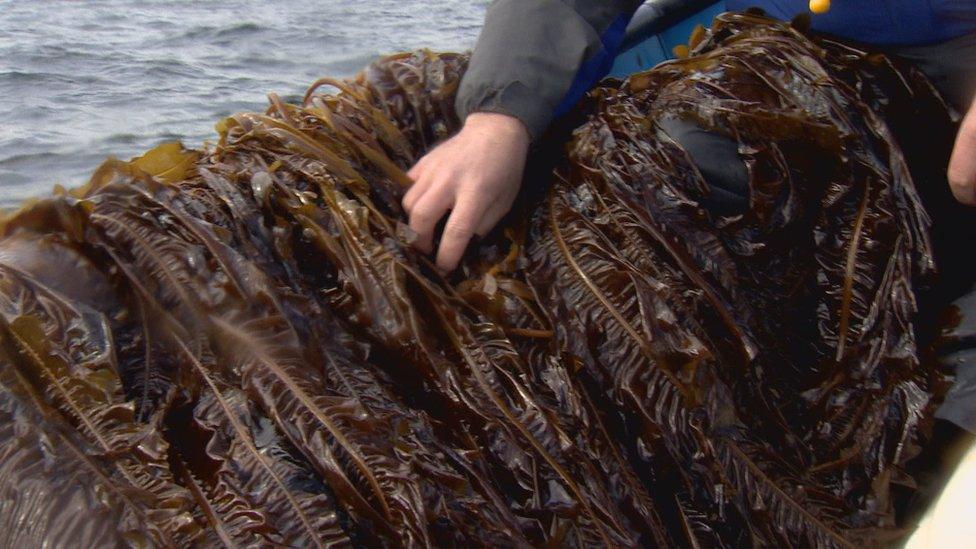Trial of seaweed farm under way near Oban
- Published

Experts say a one hectare site could produce 100 tonnes of seaweed
Trials have begun near Oban to create one of the UK's first seaweed farms.
Harvesting of wild seaweed has been taking place for centuries but researchers say there is huge potential to create a farmed industry.
Experts say 96% of the world's seaweed comes from Asia but that Scotland's waters are ideal for growing.
It is grown on lines which sit just below the surface of the water. And it could be used for food, beauty products and even biofuel.
A one hectare (2.4 acres) site, such as the one near Lismore, would be able to produce 100 tonnes of seaweed.
Marine scientist Dr Adrian Macleod said: "The main thing is quality, so if you're producing seaweed for food you want to have control over the life cycle so you can produce a product which is high in the desirable compounds you're after.
"So, cultivating in this way gives us a lot more control over the quality and the species that we're growing."

Scotland has excellent conditions for growing seaweed, according to the scientists
Each strand of seaweed we are shown is maybe five feet (1.5m) long and at its widest about 10 inches (25cm) across.
Although wild seaweed harvesting is common, farming like this is new.
Dr Macleod added: "We also need to look at ways to produce systems for cultivating seaweed which automate the seeding, harvesting and the storage of the seaweed products. And in this way we hope to create an industry that is both economically viable and an industry which is great for the future."
The trial site is being looked after by researchers from the Scottish Association for Marine Science at Oban.
Fellow scientist Dr Phil Kerrison said: "We're working on a number of different projects and they are aimed mainly at the production of biofuels but also working with companies who are using it for food or as animal fodder. So there's many different uses for this crop.
"Scotland's got excellent conditions for seaweed. They're cold species, these kelps that we're growing. They like nice, cold nutrient-rich conditions and we have a plethora of areas around here that are perfect."
Despite that, the researchers say less than 1% of the world's seaweed comes from the UK, with 96% grown in Asia.

The Scottish government has recently published guidelines for the commercial cultivation of seaweed
One established use is in beauty products.
Jackie Den Heijer, owner of Avalon Hair and Beauty in Oban, said: "It's in pretty much everything you turn your hand to now.
"There is not an awful lot that you will be able to pick up in the beauty industry that doesn't have at least an extract of seaweed in."
Last month, the Scottish government issued its first set of guidelines for the commercial cultivation of seaweed.
They urge producers to consider and mitigate adverse environmental impacts.
It is early days for the researchers who are studying which species work best in these waters and how the process can be mechanised and automated.
But the ultimate hope is this one hectare site can tap into a global industry said to be worth more than £4bn.